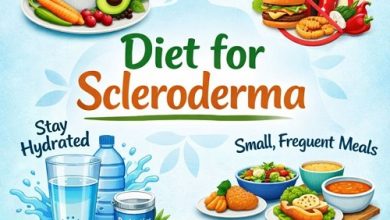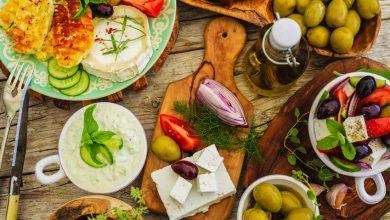This Simple Diet Helps Type 1 Diabetes Patients Use Less Insulin: Doctors Are Amazed

Imagine waking up each morning with a little more freedom. A little less anxiety around the next injection. A little more hope that you can live with your condition rather than feeling ruled by it. For many living with Type 1 Diabetes (T1D), this is more than a dream — it’s becoming a possibility thanks to a surprising, yet profoundly sensible change: the food on your plate.
In recent studies, doctors and researchers have found that a simple dietary shift can lead to significantly less insulin use, better blood‐sugar control, and overall improved metabolic health—even for those who already use insulin daily. It’s turning conversations in clinics and online support groups from frustration and fear into hope and empowerment.
1. The Reality of Type 1 Diabetes
For those with Type 1 diabetes, the body’s immune system has damaged or destroyed the insulin-producing beta cells of the pancreas. This means your body either produces little or no insulin at all. Insulin is the vital hormone that helps move sugar from your bloodstream into your cells for energy. Without it, sugar builds up in the blood, leading to serious complications.
Because of this, many patients rely on daily insulin injections or insulin pumps just to survive. But here’s the important part: insulin use isn’t just about replacing what you’re missing—it’s also about how your body responds to it.
Insulin sensitivity matters. If your body is more responsive to insulin, you might need less of it. If you’re insulin resistant, you’ll need more. And what we eat plays a big part in that sensitivity.
2. A Breakthrough Study You Should Know
A recent randomized clinical trial gave powerful evidence that a diet change can impact insulin needs for people with Type 1 diabetes. In this study:
- Participants were assigned either to a low-fat vegan diet (with about 75% of calories from carbohydrates, 15% from protein, and 10% from fat) or not restricted in calories or carbohydrate quantity.
- The other group followed a more conventional portion-controlled diet (reducing calories for overweight participants, but maintaining usual macro ratios).
- After 12 weeks, those in the vegan group experienced:
- A ~28% reduction in total daily insulin dose.
- More than doubling of insulin sensitivity (127% improvement). Reduction in LDL (“bad”) cholesterol, improved kidney function markers, and weight loss—even though calories weren’t restricted.
That is huge. For people who have to inject insulin day after day, month after month, year after year, the idea that changing eating habits can reduce the dose by nearly a third is profoundly hopeful.
3. Why Does This Diet Work? The Science Behind It
a) Lower fat → better insulin sensitivity
The study highlights that dietary fat plays a major role in insulin resistance. When you consume a meal high in fat, your body’s cells become less responsive to insulin, so your insulin dose must increase to get the same effect.
By shifting to a low-fat approach, the body becomes more “awake” to insulin’s message.
b) Plant-based foods, more fiber, better metabolism
Plant-based diets naturally bring lots of fiber from vegetables, grains, legumes, and fruits. Fiber slows digestion, stabilizes glucose spikes, and improves metabolic health. The vegan diet in the trial emphasized these foods.
c) Weight loss and reduced internal fat
Even though the vegan group wasn’t calorie-restricted, they lost weight (average ~11 pounds), which itself improves insulin sensitivity.
Also, reducing fat inside muscle cells and liver (intramyocellular and hepatocellular lipids) is important because internal fat contributes to insulin resistance.
d) Improved overall metabolic markers
Beyond insulin demand, the diet also improved cholesterol levels, kidney function markers, and glycaemic control (A1C). That means lower insulin need isn’t just about dosing—it’s about better overall health.
4. Why This Means More Than Just “Eat Plants”
This shift isn’t about a fad diet or miracle cure. Instead, it’s about smart, science-backed change. Here’s why this matters and why the emotional stakes are high:
- Less insulin means less burden: Fewer injections or pump adjustments, less worry about dosing mistakes, fewer highs and lows.
- More freedom in food choices: The diet didn’t restrict carbohydrates in quantity, only changed the type and fat content. That means you can still enjoy food—but differently.
- Hope for a better future health: Lower insulin requirements and better metabolic markers reduce your risk of complications down the road.
- Empowerment through control: Many feel that Type 1 diabetes gives them little control. Making a meaningful diet change that reduces insulin needs is a huge win for personal agency.
- Cost savings: With insulin costs rising, needing less means saving money and reducing stress about access.
5. Step-by-Step: How to Get Started Safely
Important note: Always talk to your healthcare provider or endocrinologist before making major diet changes—especially when you’re on insulin. Any change in eating must go hand-in-hand with insulin dosing adjustments and glucose monitoring.
Step 1: Consultation
- Let your doctor know you’re considering a low-fat, plant-based diet to improve insulin sensitivity.
- Work with a dietitian experienced in diabetes to create a plan tailored to you.
- Set up closer glucose monitoring during the transition (more frequent checks, maybe CGM if available).
Step 2: Transition Phases
- Week 1-2: Begin by increasing vegetables, legumes, and whole grains; reduce added fats (oils, butter, high-fat meats). Begin eliminating or reducing animal products.
- Week 3-4: Shift further to a full low-fat, plant-based pattern: minimal animal products, avoid added oils, favour whole-food carbs and legumes.
- Week 5 onward: Maintain the low-fat plant-based framework. Track how you feel, your glucose patterns, and your insulin doses.
Step 3: Dose Adjustments & Monitoring
- Because your insulin sensitivity may increase, you’ll likely need to reduce insulin doses—especially bolus (meal) insulin. Work with your medical team to adjust safely.
- Monitor for hypoglycemia (low blood sugar) as you may be more sensitive now.
- Keep logs: what you ate, glucose readings, insulin doses, and how you felt. It helps the team fine-tune your regimen.
Step 4: Meal Planning Tips
- Focus on: vegetables (leafy greens, colourful veggies), legumes (beans, lentils, peas), whole grains (quinoa, barley, oats), fruit (whole, not juice), minimal added oils or nuts (limit high-fat foods).
- Carbohydrates are not strictly restricted in quantity, but choose the type: whole, fiber-rich, lower glycemic index.
- Protein is plant-based: beans, lentils, tofu, tempeh. The study used ~15% calories from protein.
- Fat is kept very low (~10% of calories) in the study. That meant minimal added oils, high-fat nuts only modest amounts.
- Stay hydrated, engage in regular activity (exercise improves insulin sensitivity, too).
Step 5: Mindset & Lifestyle
- Be patient—changes happen over weeks, not overnight.
- Expect fluctuations. Your body is adapting.
- Support matters: join a community (online or in-person) of others managing Type 1 with dietary change.
- Celebrate non-scale wins: less insulin, fewer highs/lows, improved energy, better lipids.
6. Realistic Expectations: What You Can and Can’t Expect
You can expect:
- Potentially significant reduction in insulin doses (as seen ~28% in the trial).
- Better time in range (TIR) in your glucose readings.
- Improved metabolic health: healthier cholesterol, weight, and kidney markers.
- Feeling empowered and more in control of your health.
You shouldn’t expect:
- The diet replaces insulin entirely. For Type 1 diabetes, insulin is still essential.
- That this will work the same for everyone—individual responses vary.
- That you can “eat anything” now, while carbs weren’t restricted strictly, food quality matters hugely.
- That you’ll see results instantly—improvement comes with consistency.
7. Overcoming Common Hurdles and Emotional Barriers
“I’m scared to lower my insulin dose.”
It’s understandable. Insulin adjustment always carries the risk of hypoglycemia. That’s why close monitoring and professional guidance are critical. Your healthcare team should guide the reduction steadily and safely.
“Plant-based means boring food.”
Not true. Plant-based diets can be vibrant, tasty, diverse, and satisfying. Learning new recipes and embracing variety is a fun part of the journey. Think colourful veggies, tasty legumes, hearty whole grains, flavourful herbs and spices.
“What about family meals or eating out?”
Adaptation is possible: You can still eat out—choose plant-based options, ask for minimal added oils avoid heavy cream sauces or deep-fried foods. Family meals: make your plate the plant-based portion and bring a side you enjoy.
“It’s too much change”
Start small. Transition gradually. Maybe one plant-based meal a day at first, then increase. As you become comfortable, shift further.
8. Why Doctors Are “Amazed”
When research shows that a group of individuals with Type 1 diabetes reduced their insulin dose by nearly one-third, with improved metabolic markers, it catches attention. Doctors often expect improvement in Type 2 diabetes via diet, but less so in Type 1. This study and others are changing that understanding.
Quotes from experts:
“With the cost of insulin remaining a concern for many, our ground-breaking research shows that a low-fat vegan diet … may be the prescription for reducing insulin needs, managing blood sugar levels, and improving heart health in people with Type 1 diabetes.”
The astonishment isn’t about diet replacing insulin—it’s about diet helping insulin work better, reducing the daily burden and risk. It means rethinking how we view the role of food in Type 1 diabetes—not just as carbohydrate counting, but as insulin-sensitivity support.
9. The Emotional Power of this Change
Beyond the numbers, this diet change offers something deeply human: hope. Living with Type 1 diabetes means you’re always part of the regimen—checking, injecting, adjusting, worrying. When you gain a tool that gives you back a bit more freedom—less insulin, fewer spikes, perhaps fewer lows, a calmer mind—it affects your mood, your self‐image, your sense of possibility.
You may feel:
- More in control: You are actively doing something that helps.
- Less anxious: Fewer surprises from wild glucose swings.
- Energised and optimistic: A positive cycle emerges—better eating → better glucose → better energy → more capacity to live your life fully.
- Proud: Taking charge of your health in a meaningful way.
10. Final Words: Your Invitation to Try—With Support
If you live with Type 1 diabetes—whether recently diagnosed or long-term—you have options. What if your next meal wasn’t just fuel, but a step toward needing less insulin? What if you could improve your metabolic “terrain” so your body responded better to insulin, so you lived with a little less dependency and a little more freedom?
Here’s your invitation:
- Reach out to your healthcare team and ask: Could a low-fat, plant-based diet improve my insulin sensitivity?
- Engage a dietitian knowledgeable in diabetes and plant-based nutrition.
- Plan the transition, monitor closely, and keep records.
- Embrace the change not as a restriction, but as empowerment. You’re not giving something up—you’re gaining health, agency, hope.
- Celebrate progress—smaller insulin units, better glucose readings, better how you feel.
You are not defined by your insulin dose. But your insulin dose does reflect how your body responds. And that response can be improved. This diet isn’t magic—but it is powerful. Combined with your medical care, your monitoring, your courage—it can shift your life in meaningful ways.
In the end, the most compelling thing isn’t the number of units of insulin you inject—it’s the life you live: fewer interruptions, fewer worries, more freedom, more joy. If this diet helps you get there, then it’s not just “a diet”—it’s a step toward a fuller life.
You deserve a life where diabetes doesn’t dominate—where meals nourish, insulin supports, and you soar.
Let this be your next step. And remember: You are not alone, you are capable, and you are worth this change.




